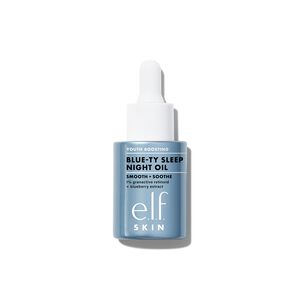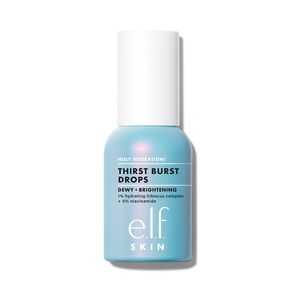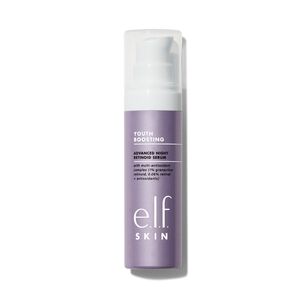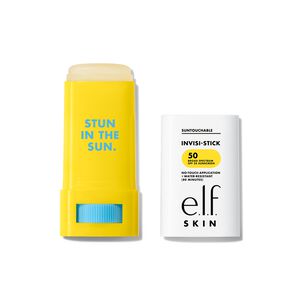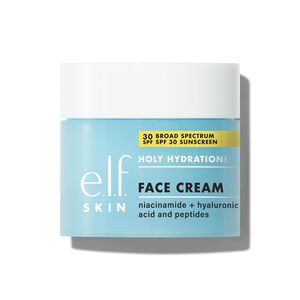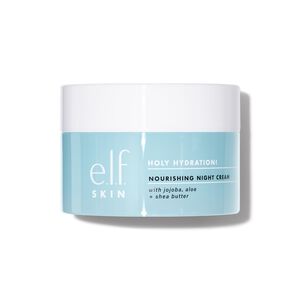₹1,969
2 Free Minis with ₹2,901+, 1 Full Size Product with ₹4,144+
₹1,010
2 Free Minis with ₹2,901+, 1 Full Size Product with ₹4,144+
₹2,407
2 Free Minis with ₹2,901+, 1 Full Size Product with ₹4,144+
₹1,532
2 Free Minis with ₹2,901+, 1 Full Size Product with ₹4,144+
₹1,313
2 Free Minis with ₹2,901+, 1 Full Size Product with ₹4,144+
₹1,313
2 Free Minis with ₹2,901+, 1 Full Size Product with ₹4,144+

E.L.F.'S BEST SKINCARE FOR ANTI-AGING
Browse the best skincare for aging skin with an array of dermatologist-developed formulas.
Many skin experts agree that your skin starts aging when you are around 20. In Scientific American’s article Why Does Skin Wrinkle with Age? What is the Best Way to Slow or Prevent This Process?”, Suzan Obagi states that aging initially starts off with your skin slowly decreasing its collagen production. Collagen is one of the building blocks of your skin so when it starts to decrease it shows up as a loss of elasticity in your skin and your skin starts to appear less supple.
YES! Sunscreen typically helps to protect you from sunburns and skin cancer (UVB rays).Some sunscreens can also help protect against premature skin aging. Photoaging is the damage to the skin caused by exposure to the sun’s ultraviolet radiation, specifically from UVA rays. The American Academy of Dermatology (AAD) has a great list of things you can do to help your skin and first on the list is to wear sunscreen. Sun damage is often one of the leading causes of skin aging. Even when it’s cloudy outside, you should still wear sunscreen to protect your skin, preferably one labeled broad-spectrum or UVA/UVB.
Sadly, no. The American Academy of Dermatology Association states that we cannot change the natural aging process. However, we can influence premature skin aging through our lifestyle choices, such as using sunscreen, eating a healthy, well-balanced diet, and using a facial moisturizer daily.
According to the Harvard Health Publishing article “Why is Topical Vitamin C Important for Skin Health”, vitamin C is one of the most science-backed and dermatologist-favored ingredients to help slow premature skin aging. Vitamin C is a powerful antioxidant that can slow the early signs of skin aging, help prevent sun damage, brighten tired and dull-looking skin, as well as improve the appearances of fine lines, dark spots, and even acne. It is safe for most skin types. You want to find products that have vitamin C in a stable form such as L-ascorbic acid for it to be the most effective.
The first step in improving your aging skin is to make some lifestyle changes. The American Academy of Dermatology (AAD) has a great list of things you can do to help your skin. First and foremost, wear SPF every day, even when it’s cloudy. Also, getting healthier overall helps your skin. Drinking plenty of water, eating healthier, exercising more, getting enough sleep and avoiding smoking can all help your skin look and feel its best. You can take this one step further by incorporating anti-aging products into your skincare routine. Effective anti-aging ingredients to look for are vitamin C (a powerhouse antioxidant to protect your skin), hyaluronic acid (a humectant to plump it up), retinoids (to stimulate the production of collagen to help maintain your skin’s structure), AHAs/alpha-hydroxy acids (to brighten your skin and boost the renewal of skin cells), and peptides (also to help stimulate the production of collagen in your skin). You cannot completely reverse the signs of aging, but you can improve the look and feel of your skin and give it a boost of youthfulness.
